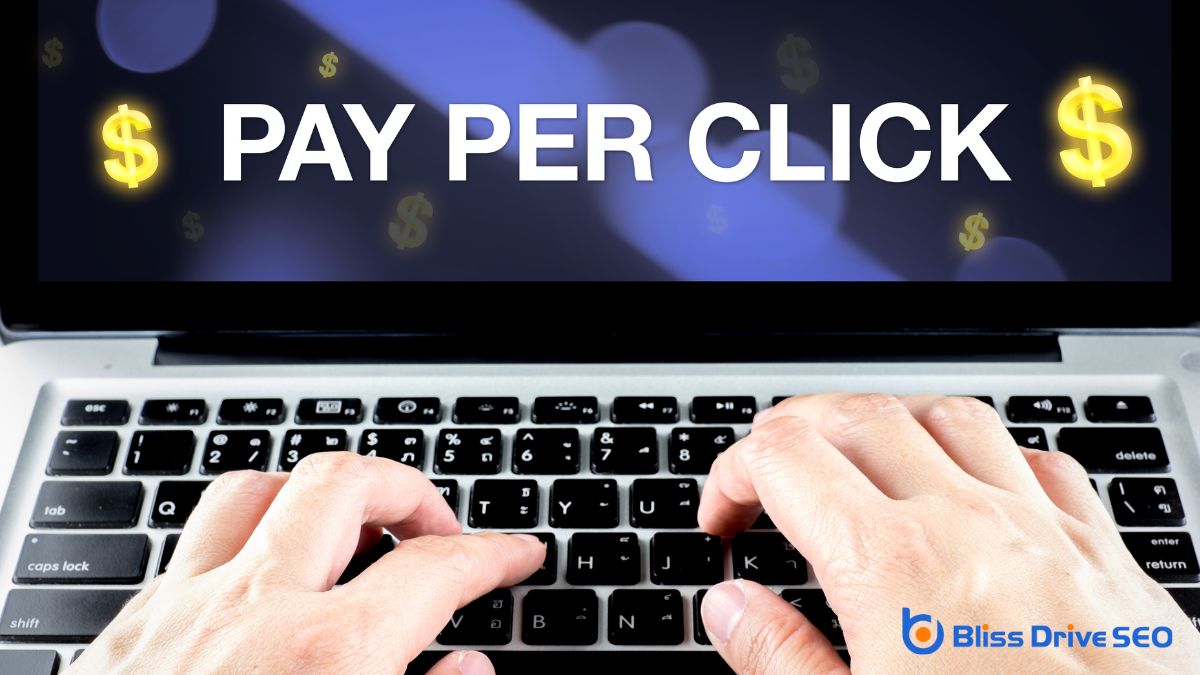Digital Marketing Services
Learn More About Us
PPC, or Pay-Per-Click advertising, is a strategy where you pay each time someone clicks on your ad. It gives your business immediate visibility on search engines and social media, driving targeted traffic swiftly. You can control the budget and target specific audiences, ensuring efficient use of resources. It allows precise targeting and audience segmentationDividing a social media audience into smaller groups based on specific criteria for targeted marketi..., enhancing your ad's effectiveness. Performance is easily measurable, guiding strategic improvements. Discover more about maximizing PPC's potential.
Pay-per-click (PPC)An online advertising model where advertisers pay a fee each time their ad is clicked. advertising is a powerful tool in digital marketing. By understanding its basics, you can make informed decisions about your marketing strategy.
In PPC, you pay a fee each time someone clicks your ad, allowing you to buy visits to your site rather than earning them organically. You set up campaigns using platforms like Google Ads or Bing Ads, choosing keywordsWords or phrases that users type into search engines to find information. relevant to your business.
When someone searches for those keywords, your ad might appear if your bid is competitive. You control your budget, ad placementsSpecific websites or locations within websites where ads can appear., and target audience, ensuring your ads reach the right people.
PPC offers flexibility and immediate results, enabling you to track performance and adjust as needed. Mastering PPC basics can greatly boost your marketing efforts.

When you utilize PPC advertising, it can markedly boost your online visibility almost instantly. By placing your ads on search engines or social media, potential customers see your brand first, even before organic search results. This immediate exposure is essential, especially in competitive markets. Imagine this: your ad sitting right at the top, catching eyes and inviting clicks. Here's a simple breakdown of how PPC enhances visibility:
| Element | Impact on Visibility |
|---|---|
| Ad Placement | Top of search results |
| Speed | Instant visibility boost |
| Control | Budget and audience |
| Flexibility | Adaptable strategies |
| AnalyticsThe systematic computational analysis of data or statistics to gain insights and support decision-ma... | Measurable performance |
To master precise targeting with PPC, you need to focus on audience segmentation techniques, keyword selection strategies, and ad copyThe text or content of an advertisement. optimization.
By understanding your audience's demographics and interests, you can tailor your ads to reach the right people at the right time.
Carefully choosing keywords and crafting compelling ad copy will further guarantee your message resonates and drives the desired actions.
While mastering audience segmentation in PPC campaigns isn't always straightforward, it's vital for precise targeting and maximizing returns. You need to understand your audience's behaviors, interests, and demographics to create effective segments.
Start by analyzing your existing customer data. This will help you identify patterns and common characteristics. Break down your audience into meaningful groups based on age, location, or buying habits.
Next, consider using tools like Google AnalyticsA web analytics service offered by Google that tracks and reports website traffic. to gain deeper insights into user behavior. It's important to continuously test and refine your segments. Monitor performance and adjust as needed to guarantee you're reaching the right people.
Selecting the right keywords is essential for crafting effective PPC campaigns that precisely target your audience.
To start, brainstorm terms your potential customers might use when searching for your product or service. Use tools like Google Keyword Planner to identify popular and relevant keywords.
Focus on long-tail keywordsLonger, more specific keyword phrases that are less competitive and often more targeted., as they often have lower competition and higher conversion rates. Think about the intent behind each keyword. Are users looking to buy, learn, or compare? Align your keywords with their intent to capture the right traffic.
Regularly review and refine your keyword list. Analyze performance data to identify which keywords drive results and which need adjustment.
Crafting compelling ad copy is essential for maximizing the effectiveness of your PPC campaigns. Your words should captivate your audience, drawing them in with clarity and relevance.
Start by understanding your target audience's needs and pain points. Use this insight to create ad copy that speaks directly to them, offering solutions or benefits they can't resist.
Be concise—every word counts in PPC. Highlight your unique selling proposition and include a strong call to action that encourages clicks.
Test different versions of your ad copy to see what resonates best with your audience. Regularly analyze performance metricsKey indicators used to measure the effectiveness of affiliate marketing efforts, such as clicks, con... to refine your approach.
To measure the success of your PPC campaigns, start by tracking conversion rates to see how many clicks turn into valuable actions.
Next, evaluate your return on investment to guarantee you're getting more value than you're spending.
While PPC campaigns can drive significant traffic to your site, it's crucial to track conversion rates to truly measure their success.
Conversion rates show how many visitors take desired actions, like making a purchase or signing up for a newsletterA regularly distributed email containing news, updates, and content relevant to subscribers.. By focusing on this metric, you can determine if your ads are performing effectively.
Here's how you can track conversion rates:
Understanding these elements can lead to more successful PPC strategies.
How do you truly know if your PPC campaigns are delivering value for your investment? Start by evaluating your Return on Investment (ROI)A measure of the profitability of an investment, calculated by dividing the net profit by the cost o....
Calculating ROI involves comparing the revenue generated from your PPC campaigns against the costs incurred. To do this, track metrics like conversions, click-through rates, and cost per conversion. These figures help you see if your budget translates into tangible profits.
Focus on identifying patterns and trends by analyzing your data over time. Use tools like Google Analytics to measure performance accurately.
With this information, you can optimize your strategies, reallocate your budget to high-performing ads, and eliminate underperformers. Understanding your ROI helps guarantee your PPC efforts are profitable and aligned with your business goals, providing a clear picture of success.
When you plunge into PPC campaigns, controlling your budget and enjoying flexibility are key advantages that can greatly impact your advertising success.
You have the power to set a daily or monthly budget, ensuring you never overspend. This control lets you allocate resources according to your business needs and market conditions.
Flexibility is another strong suit of PPC. You can adjust your spending based on campaign performance, seasonal trends, or new goals without any long-term commitments.
Here are three ways PPC offers budget control and flexibility:

Crafting a winning PPC strategy requires a thoughtful approach that balances creativity with analytical insight. Start by defining clear goals. Are you looking to boost sales, generate leads, or increase brand awarenessThe extent to which consumers are familiar with the qualities or image of a particular brand.? Knowing your objectives guide your campaign decisions.
Next, identify your target audience. Understand their needs, preferences, and online habits to tailor your ads effectively. Choose the right keywords by researching terms your audience uses. Utilize tools like Google Keyword Planner for insights.
Create compelling ad copy and eye-catching visuals that resonate with your audience. Don't forget to continuously monitor and adjust your campaign based on performance data. This helps you optimize for better results.
Essentially, PPC is your ticket to boosting visibility and reaching your target audience with precision. You can quickly analyze results to measure success, ensuring your strategy is on point. The flexibility in budgeting gives you control, allowing you to adjust campaigns as needed. By mastering these elements, you'll craft a winning PPC strategy that drives results and maximizes your investment. Embrace PPC, and you'll see your online presence and business growth soar.
